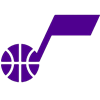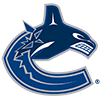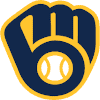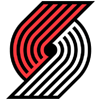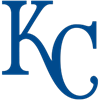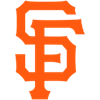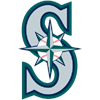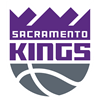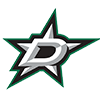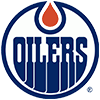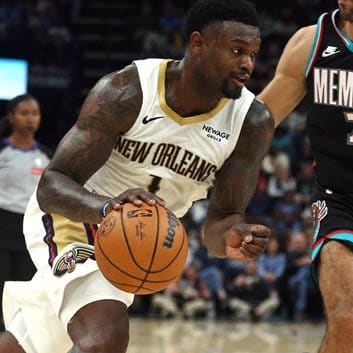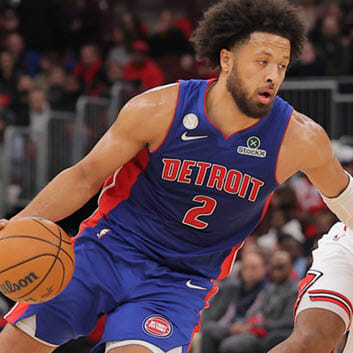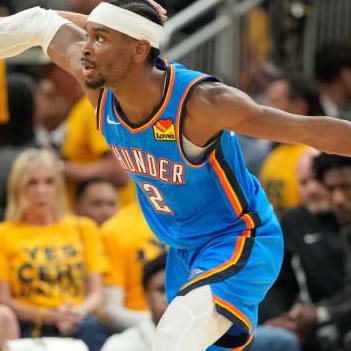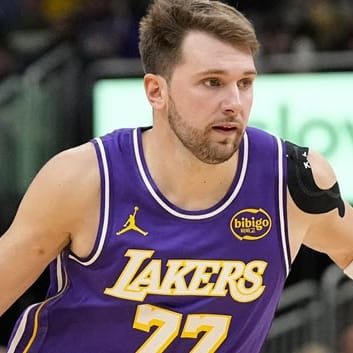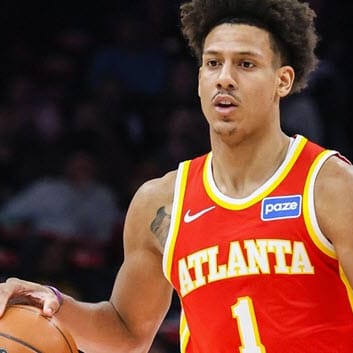I'm team #NeverRookie. The premise is simple. Don't draft a rookie.
For years, I've shouted at internet strangers not to waste their early draft picks on rookies. But I've never written a column specifically devoted to why rookies should be avoided, and when it's OK to break that seal. This is that column.
With Zion Williamson taking the preseason by storm, and Ja Morant and RJ Barrett popular mid-round pickups, this topic is as important now as ever.
What does it mean to be #NeverRookie?
While I'm certainly not the first person to advocate caution towards rookies, #NeverRookie is a shorthand that I invented. An advanced twitter search for the hashtag shows only conversations I started, someone tweeting a picture of sausages on a grill, and two indecipherable tweets that I'm 60% sure came from bots. Nonetheless, I remain undeterred in my effort to make fetch happen.
The Never Rookie strategy has two core tenets:
1. Never use a top-100 pick on a rookie
There is no one-size-fits-all translation of this tenet for auction leagues. However, as an approximate example, in most standard 12-team league auction drafts, this rule roughly translates to "don't spend more than three percent of your budget ($6 out of $200) on a rookie".
2. Do use one of your last three picks on a rookie
For auction leagues, this translates to "get a rookie with one of your end-of-draft low money bids."
Of course, these are guidelines. Tenet 1 is obviously much more important than Tenet 2. Also, there is nothing magical that happens between picks 99 and 100 that suddenly makes a rookie worthwhile – if you want to bend Tenet 1 a little by reaching into the 90s for your preferred rookie target, I won't fault you.
Why #NeverRookie?
Two reasons, both equally important.
One reason is that we – all of us, from the fans to the fantasy analysts to the NBA teams themselves – are all very bad at predicting which rookies will be great and which ones won't.
The second reason is that the fantasy community chronically overrates rookies. The result is that even when we correctly identify a rookie worthy of drafting, their ADP is usually so high that they either break even or represent a small loss in draft capital.
We are bad at predicting rookies
I've yet to come across the person, group, or entity with a good track record for predicting rookie success. Importantly, we're talking only about rookies here. There is a significant correlation between where a player was selected in the NBA draft and his career win shares – plenty of people, groups, etc. do a better-than-random job of predicting NBA career success. But when you focus specifically on rookie seasons? All of us are bad at identifying who will flop and who will flourish. We need to recognize this fact and be honest with ourselves about it.
I have average draft position (ADP) data starting in 2014-15. In the five seasons that covers, the rookie with the earliest ADP finished as fantasy's top rookie three times. That's just a 60% success rate, not great for an early draft pick. More importantly, if we had more historical data, the actual success rate would probably be significantly lower.
The following chart to shows the top-finishing rookies from the last 12 seasons and whether or not they had the earliest ADP among rookies. The "confidence level" column is accounts for the seasons where specific ADP data is not available.
| Year | Highest-ranked rookie at the end of the season | Were they the highest ADP rookie? | Confidence level |
| 2018 | Deandre Ayton | Yes | Certain |
| 2017 | Ben Simmons | Yes | Certain |
| 2016 | Malcolm Brogdon | No | Certain |
| 2015 | Karl-Anthony Towns | Yes | Certain |
| 2014 | Nerlens Noel | No | Certain |
| 2013 | Michael Carter-Williams | Definitely not | Very high |
| 2012 | Anthony Davis | Yes | Very high |
| 2011 | Kyrie Irving | Probably | Pretty high |
| 2010 | Blake Griffin | I don't think so, it was probably close with John Wall | Very low |
| 2009 | Stephen Curry | I think Tyreke Evans went above him | Low-to-medium |
| 2008 | Brook Lopez | Definitely not | Pretty high |
| 2007 | Jamario Moon | Not even in the Moon family league | 100% certain. |
We don't need ADP data to know that no one was predicting Jamario Moon would have a better rookie fantasy season than Kevin Durant. Moon went undrafted in 2001, and then bounced around the D-League, international basketball, and semi-pro leagues before he caught on with the Heat. Moon, who made the All-Rookie Second Team at age 27, finished that season inside fantasy's top-60. Kevin Durant and Al Horford, the highly touted second and third picks in the 2007 draft, finished between 85 and 100.
In the last 12 seasons, the fantasy community's record for correctly predicting the best fantasy rookie is 5-5-2. And that's giving the community ties for Griffin and Curry, despite my assumption is that the actual data would show those as losses.
It's also worth noting that every time the fantasy community got it right, it was because the rookie with the highest ADP had been a no-brainer No. 1 pick in the NBA draft. Irving, Davis, and Towns were all considered the clear first pick in their respective drafts for the entire year – you'd have difficulty finding a mock draft from any reputable company that ever had any of them falling out of the top spot. Simmons and Ayton weren't quite Davis- or Towns-level prospects, but they weren't far off.
Furthermore, in all five of those seasons where the fantasy community correctly predicted the best fantasy rookie, we were woefully wrong about who we thought would finish second. The second rookies drafted behind Towns, Simmons and Ayton were Jahlil Okafor, Lonzo Ball, and Luka Doncic. None finished second among rookies, and Ball is the only one of the three to finish inside the top-100 in 9-cat. All three finished more than 20 spots below their ADP.
The takeaway is that sometimes – not always! – when an NBA draft has a clear No. 1 prospect, that player will be both fantasy's highest-drafted rookie and finish the season as the best fantasy rookie. Outside of those players, the fantasy community has an almost perfect record for incorrectly predicting which rookies will perform the best.
We over-hype rookies
We like shiny objects. That's OK! We all do! But we need to understand that about ourselves, or else we will ruin our fantasy teams.
We all know about the rookie success stories, and we allow them to carry too much weight in our collective decision-making process. We've seen rookies play season-defining roles for fantasy rosters year after year, and we want in on that action.
Last season, Mitchell Robinson finished as a top-50 fantasy option. Donovan Mitchell finished in the top-55 the season before. Over the last five seasons, Nikola Jokic, Kristaps Porzingis and Lauri Markkanen all finished inside the top-70 as rookies. According to ADP, none of those players were drafted in standard 12-team leagues. It's very rare for a player to go from undrafted to a top-50 or a top-70 finish in fantasy leagues, and we all take notice when it happens. When that does happen, the player involved is often a rookie.
Those success stories make us worse drafters, as they cause us to clamor for whichever rookies we believe will be best. We are overly aware of the times that rookies have been important season-defining values, at the expense of acknowledging the much more common occurrence of rookies' draft costs exceeding their actual value. The rare breakouts have much more impact on our perception of rookie values that the half-dozen rookies who get drafted and dropped every season.
The cost of over-hyping rookies
Even when the fantasy community correctly identifies a good rookie, we almost always draft that rookie too early.
2018-19 was a mostly typical season for rookies. Four rookies were drafted inside the top-100, two finished inside the top-80, and a third finished inside the top-100 – all pretty standard outcomes. And, as is the case most seasons, the rookies drafted inside the top-100 were bad draft-day values.
| Rookie | ADP | Final 9-cat rank | Value Gained/Lost | Final 8-cat rank | Value gained/Lost |
| Deandre Ayton | 37 | 33 | 4 | 43 | -6 |
| Luka Doncic | 57 | 100 | -47 | 56 | 1 |
| Trae Young | 77 | 125 | -48 | 58 | 19 |
| Wendell Carter Jr | 101 | 117 | -16 | 117 | -16 |
As you can see, spending an early draft pick on a rookie tended to damage a fantasy team. Managers made a small profit drafting Ayton in a 9-cat league, broke even with Doncic in 8-cat, and they struck gold with Trae Young in 8-cat. Otherwise, using a top-100 pick on a rookie hurt a roster.
The same pattern reveals itself year after year. In 2017-18, one of the best fantasy years ever for rookies, only one of the first seven rookies taken in fantasy drafts finished the season with a ranking better than their ADP.
Jayson Tatum, the fifth rookie drafted with a 101 ADP, finished the season inside the top 70. Ben Simmins and Lonzo Ball also finished the season inside the top 80, but neither lived up to their top-50 ADP. Markelle Fultz, Dennis Smith Jr, De'Aaron Fox and Josh Jackson were all drafted between picks 69 and 108, and all four finished the season outside of the top 200. Meanwhile, fantasy studs like Lauri Markkanen, Donovan Mitchell and John Collins all went undrafted.
Only two rookies were drafted inside the top-100 in 2016-17: Joel Embiid and Brandon Ingram. Embiid played just 31 games, and Ingram finished outside the top-300. In 2015-16, Karl-Anthony Towns was the rare rookie to provide a fantasy profit, significantly outperforming his ADP. But, once again, the field behind him is familiar. In another great year for rookies overall, the other top-100 finishers all went undrafted in most standard leagues. Jahlil Okafor was useful for fantasy, but he finished far below his 90th ADP. Season after season, the results are the same.
Draft rookies when the cost is low
As has come up a few times, not all rookies are bad. In fact, nine of the past 12 seasons have seen multiple rookies finish in the top-100. The core reason rookies get overrated is fundamentally true – rookies have a ton of upside!
On average, just under three rookies per season finish inside the top-100, and just over one per season finishes inside the top-60. As mentioned earlier, Mitchell Robinson and Donovan Mitchell finished inside the top 55 as rookies. Both went undrafted in fantasy. Pascal Siakam in 2018-19 was the only other player to rise from undrafted to a top-55 finish in either season. Rookies make up a significant portion of the players who rise from near-anonymity to fantasy standout.
The potential upside a rookie presents is therefore much higher than the that of almost anyone else late in drafts. Most late draft picks will get dropped over the first few weeks to make room for waiver wire pickups, so managers should focus their final picks on high-upside players – i.e. rookies – at the expense of a low-upside veteran. For example, the best-case scenario for Evan Fournier, ADP 123, is probably a finish in the 100-120 range. A similar player is certain to emerge on the waiver wire shortly. Instead of selecting Fournier, draft your favorite unheralded rookie.
All this is great, but what if I already drafted?
With the season rapidly approaching, there are two things you can do if you've already drafted.
Trade Ja Morant or RJ Barrett (two of the three rookies with top-100 ADPs) as soon as you can in order to recoup maximum value.
Drop your last draft picks to pick up whichever rookie you think is best positioned to succeed. You are probably going to drop your last few picks in a week or two anyway. My personal favorite is the Wizards' Rui Hachimura. My second recommendation is Hachimura's college teammate, the Grizzlies' Brandon Clarke. If neither of those are available, or if you just want more options to consider, here are the other rookies worth considering, in the order that I'd recommend adding them:
- Coby White, Bulls
- Matisse Thybulle, 76ers
- Tyler Herro, Heat
- Darius Garland, Cavaliers
- Nickeil Alexander-Walker, Pelicans
- Jarrett Culver, Timberwolves
- Michael Porter Jr., Nuggets (highest upside of all of the rookies, but unlikely to reach it)
- PJ Washington, Hornets
- Darius Bazley, Thunder
- De'Andre Hunter, Hawks
- Goga Bitadze, Pacers
- Jaxson Hayes, Pelicans
- Cam Reddish, Hawks
- Jordan Poole, Warriors
If you drafted Zion Williamson, you fall into another category entirely. Technically Williamson doesn't meet the Anthony Davis-Karl-Anthony Towns standard of wire-to-wire No. 1 NBA draft picks, as he was considered the second- or third-best prospect in his class until roughly January. But that feels more like a technicality, and as he was still the obvious, unquestioned No. 1 for nearly six months.
As much as I doubt rookies, I believe in Williamson, and he seems fit the criteria for a player who can be both the highest ADP rookie and the best rookie for fantasy. His ADP was probably a little too high, but if you've already drafted then there is nothing you can do about that now.
The issue with Williamson is his knee injury, which will cost him six-to-eight weeks to start the season. The injury will probably prevent you from getting fair value in a trade, though it might be worth it to probe the market after his thrilling preseason. You're best bet might be to just hold on and hope for the best.







